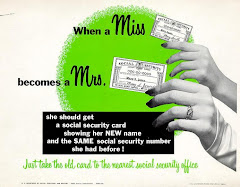Some points to remember if you receive Social Security retirement benefits in 2010:
- If you will not reach your FRA this year, you must limit your annual earnings from work (gross wages or net profit from self-employment) to $14,160 to receive all of your benefits.
- Individuals who will reach FRA sometime during the year may earn up to $37,680 during the months before the month they attain their FRA.
- Beginning with the month you reach your FRA, there are NO limits to earnings from work.
So, what happens if you end up earning more than the allowable amount during the year?
- If you are under your FRA the entire year, then Social Security will withhold $1 in benefits for every two $2 you earn over $14,160.
- If you reach your FRA during 2010, then Social Security will withhold $1 in benefits for every $3 you earn over $37,680 BEFORE your FRA month.
But, you say, "How will Social Security know if I will earn over the limit in 2010?"
Answer: They will pay you based on the estimate of earnings you provide.
"And if I estimate too low and end up making a lot more than I thought?"
Answer: Social Security will send you a notice advising you that you were overpaid and that they will withhold your benefits until the overpayment is recovered from current year benefits.
This won't happen until Social Security is notified of your earnings on your Form W-2 from your employer or your Self-Employment tax return filed with IRS. This could take 9 months or longer after the end of the calendar year. So, if you want to avoid an overpayment, call Social Security as soon as you discover that you will be earning more than the allowable limit for the year!
.jpg)





